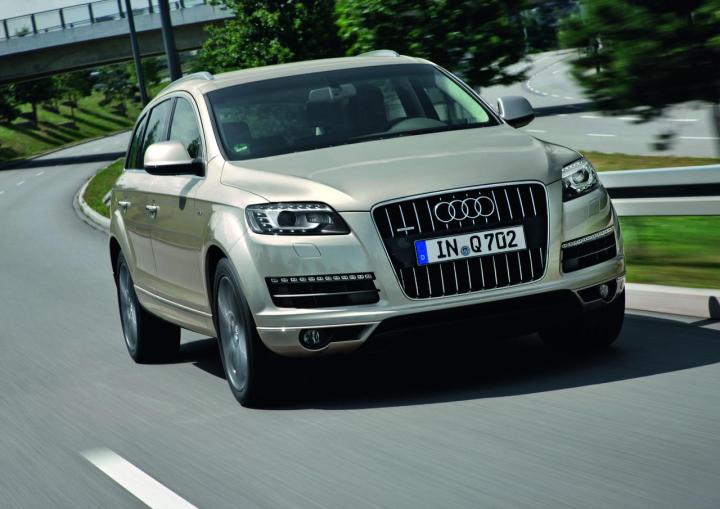
Audi has been developing electric turbocharger technology for years, and it all started with the R18 e-tron LMP1 racecar.
The early models of the LMP1 Le Mans racer used an electric motor to spool up its turbo rather than exhaust gases, but unfortunately it didn’t perform as projected.
The electric unit was then scrapped in favor of a standard turbo, but the technology lived on. Audi took the electric turbo from the speedway to the streets, applying it to the RS5 TDI concept. On the RS5, the “e-boost” turbos added an impressive 145 horsepower and 125 pound-feet of torque to the diesel powertrain. More impressively, the extra torque arrived at only 1,250 rpm, right above idling speeds.
Now, according to a report by Drive, Audi’s first production vehicle to receive electric turbocharging technology may be the 2015 Q7, a full-size luxury SUV.
Ulrich Weiss, Audi’s head of diesel-engine development, hinted that the rumors of an e-boost-powered Q7 may be true at the Le Mans 24-hour race.
“I can confirm we are working on the development of the e-boost definitely,” he said, adding that the technology will featured in a production car “very soon.”
When asked if the Q7 will be the first mass-produced road car to include e-boost technology, Weiss remained silent but smiled in response. At best, this hints at a connection between the Q7 and e-boost tech, but it’s certainly not written in stone.
However, it would make sense for the next Q7 to feature this technology because of its relation to the RS5 TDI concept. Yes, one is a concept coupe and the other a large SUV, but, like the RS5, the current Q7 carries a 3.0-liter turbocharged diesel V6. It’s only logical for future Q7s to adopt the electric turbos from their smaller, conceptual stablemates.


